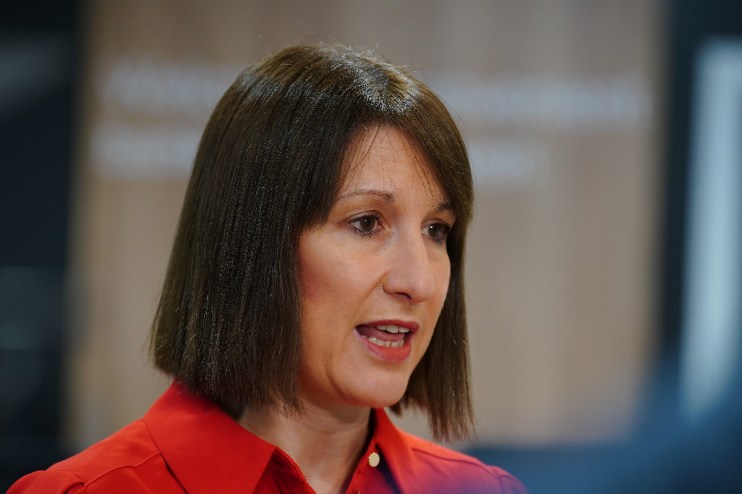Rachel Reeves eyeing spending cuts in spring

Rachel Reeves is considering cutting departmental spending as UK borrowing costs soar, despite risks it could “dampen” activity and “further dent anaemic” growth.
The Chancellor is said to be eyeing further reductions to unprotected government departments’ budgets after she ruled out additional tax rises or more borrowing to avoid breaking her fiscal rules following the highest surge in UK bond yields since 2008.
Such measures, likely excluding ring-fenced areas such as health, education and defence funding, may be announced in a spring emergency fiscal statement, as per the Guardian, with a wider government spending review pencilled in for June.
It comes after Treasury minister Darren Jones repeatedly called Reeves’ fiscal rules – including not to borrow to fund day-to-day spending – “non-negotiable” on Thursday.
A Downing Street official reportedly also called them as a “red line” the government would not be willing to cross.
“If we have to choose between raising taxes and cutting spending, we will cut spending,” a Treasury source told the Guardian.
A former Bank of England deputy governor, Sir John Gieve, told BBC Radio 4’s Today Programme that he believed the changes to UK gilt yields were linked to the US market but that the government would ultimately have to make some “new, difficult, decisions”.
He said: “The choice [Rachel Reeves] is going to face in the spending review and then the budget in the autumn, is ‘can I raise borrowing?’ and the increase in interest rates that’s happened now, if it continues, will decrease her scope for doing that within her rules.”
He added the Chancellor would also have to contemplate: “‘Or do I increase taxes again? Or do I actually institute some very severe reductions and squeezes on public services?’”
UK spending cuts to hit growth
The warnings come as several analysts warned that spending cuts could diminish the already lacklustre prospects for the UK’s economic growth, which Labour has made a cornerstone of their political project.
Michael Brown, senior research strategist at Pepperstone, said: “Markets want more than this mealy-mouthed political nonsense, with instead a firm commitment to further spending cuts, and/or revenue raising measures, being required to stem the bleeding in gilts.
“That said, said measures would, obviously, further dent the UK’s already anaemic economic growth, at a time when inflation remains sticky, leaving the economy in a worst of all worlds stagflationary scenario.”
And Susannah Streeter, head of money and markets at Hargreaves Lansdown, cautioned: “If the government is forced to increase taxes or reduce spending, which Reeves will want to avoid, it could dampen down economic activity and make interest rate cuts more likely.”
XTB research director Kathleen Brooks added that a speech from the Chancellor was expected “in the coming days, where she may focus on public sector spending cuts rather than further tax increases to meet her fiscal rules”.
But she stressed: “There are no guarantees that Rachel Reeves will be able to calm the market.
“The market price action is a damning reflection of the government’s economic policies so far, and it suggests a lack of confidence in their ability to fuel economic growth in the UK.
Speaking this morning about market turbulence, culture secretary Lisa Nandy told Sky News: “I don’t think we should be worried.
“It’s obviously something we take very seriously, but these are global trends that have affected many countries, most notably the United States, as well as the UK.”
She added: “We are still on track to be the fastest growing economy, according to the OECD in Europe… we’re not going to borrow for day-to-day spending.”
